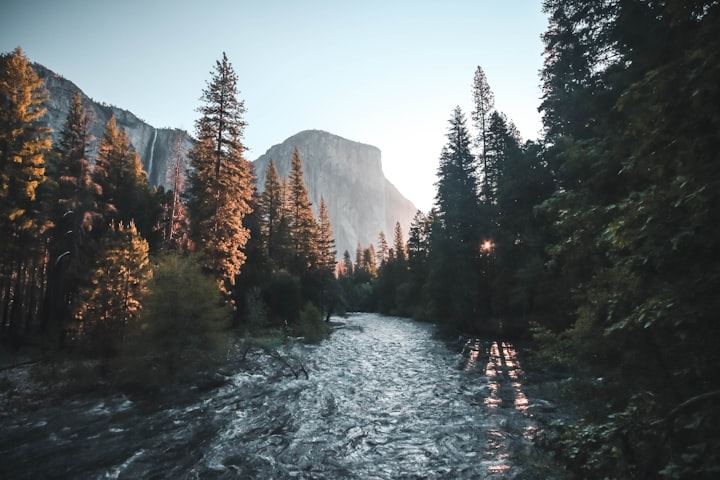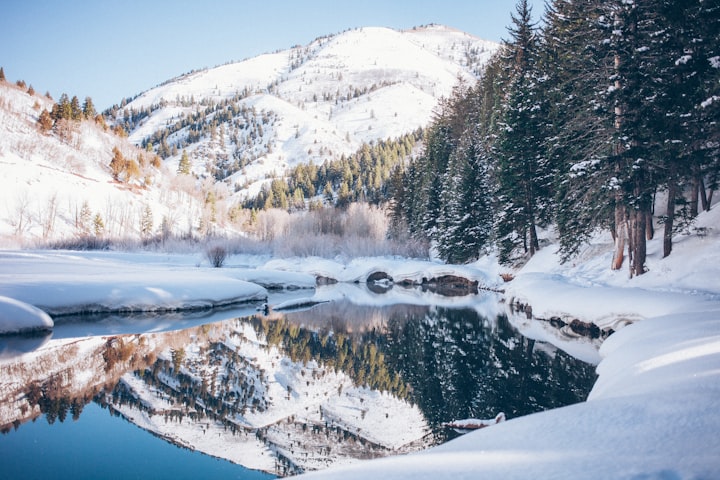
Have you ever wondered how mountains came to be? These towering peaks are some of the most awe-inspiring natural features on our planet, and they play a crucial role in shaping our landscapes and our lives. But what exactly causes mountains to form, and why are they so important?
In this blog post, we'll take a deep dive into the fascinating geology of mountains. We'll explore the different types of mountains, how they form, and what makes them such a critical part of our planet's ecosystem. And of course, we'll sprinkle in a bit of humor along the way, because let's face it - rocks can be pretty funny.
So, whether you're a geology buff, an outdoor enthusiast, or just someone who's curious about the world around you, join us on a journey through the mountains and discover the secrets of their creation.
Have you ever wondered what makes mountains so special? These towering giants are some of the most awe-inspiring features on our planet, capturing our imaginations and beckoning us to explore. But what causes mountains to form in the first place, and what makes them so important to our world? Join us on a journey through the fascinating geology of mountains to find out.
To understand how mountains form, we need to start with the basics. The Earth's crust is made up of several large plates that move and interact with each other over time. When two plates collide, one of three things can happen: one plate can slide under the other, causing earthquakes and volcanic activity; the plates can pull apart, creating rift valleys and new ocean basins; or the plates can push together, creating a collision zone where mountains are formed.
There are two main types of mountains: volcanic and fold mountains. Volcanic mountains are formed by the buildup of lava and ash that spew from a volcanic vent. Over time, these layers of rock can build up to form a cone-shaped mountain. Examples of volcanic mountains include Mount Fuji in Japan and Mount St. Helens in the United States.
Fold mountains, on the other hand, are created when two tectonic plates collide and push against each other. The pressure causes the crust to fold and buckle, creating a range of mountains. The Himalayas, the Rockies, and the Alps are all examples of fold mountains.
But mountains aren't just beautiful features to look at. They play a crucial role in shaping our planet's ecosystems and supporting life as we know it. Mountains act as a barrier, blocking the movement of air masses and creating distinct climate zones. They also play a crucial role in the water cycle, capturing moisture from the air and releasing it as rain or snow. Without mountains, our planet would be a very different place.
But perhaps most importantly, mountains are home to a stunning array of plant and animal life. From the rare and elusive snow leopard to the hardy alpine flowers that bloom in the thin mountain air, these ecosystems are some of the most biodiverse and fragile on our planet. By exploring and studying these environments, we can learn more about how our planet works and how we can protect it for future generations.
Of course, studying the geology of mountains isn't all serious business. Rocks can be pretty funny sometimes, after all. For example, did you know that the highest mountain in our solar system is actually located on Mars? Olympus Mons is a massive shield volcano that rises nearly 22 kilometers above the Martian surface. Or how about the fact that Mount Everest, the tallest mountain on Earth, is actually getting taller every year? Thanks to the ongoing collision between the Indian and Eurasian tectonic plates, Everest grows by about 0.4 inches each year.
And let's not forget about the many quirky legends and myths that have grown up around mountains over the centuries. From the mountain spirits of Japanese folklore to the legendary yeti of the Himalayas, mountains have captured our imaginations and inspired countless tales of adventure and wonder.
So, the next time you gaze up at a towering mountain peak, take a moment to appreciate the incredible geology that created it. From their role in shaping our planet's ecosystems to the mysteries and legends that surround them, mountains are a truly fascinating subject. And who knows? Maybe you'll be inspired to plan your own mountain adventure, armed with a newfound appreciation for the incredible forces that created these natural wonders.






Comments
There are no comments for this story
Be the first to respond and start the conversation.